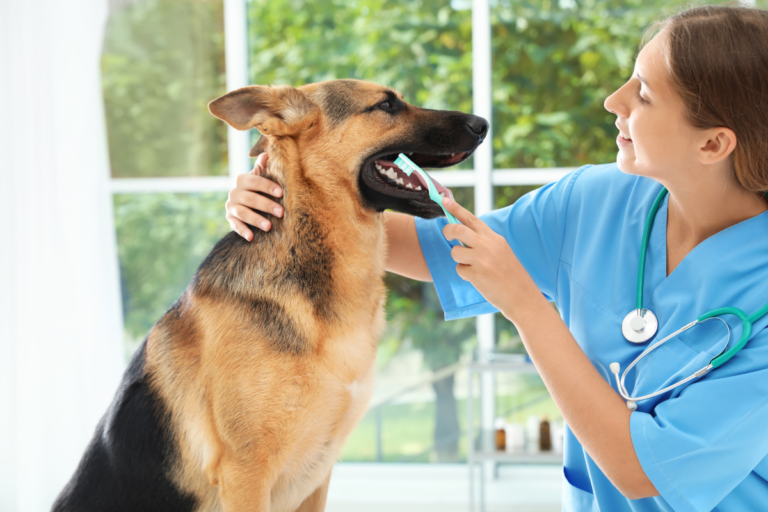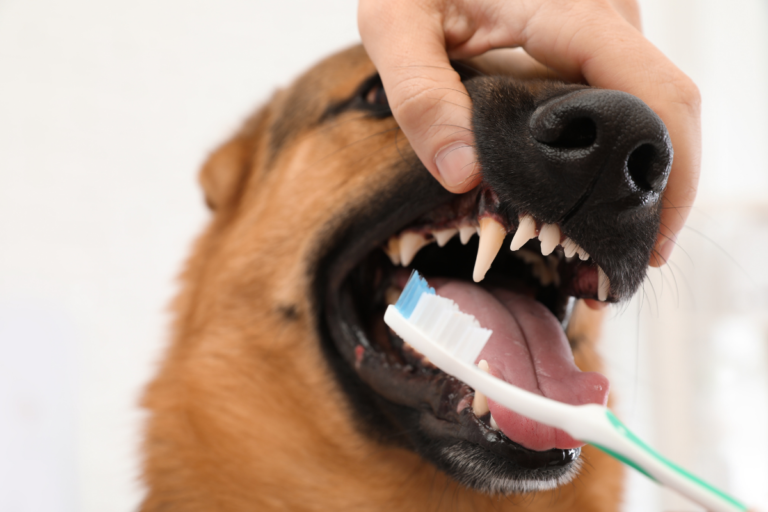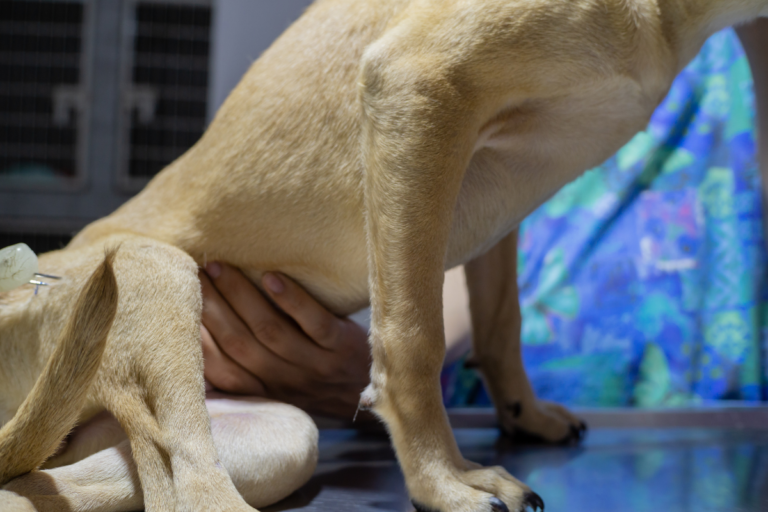Championing Canine Health: Managing French Bulldog Health Problems
French Bulldog Health Overview
Common Health Disorders
French Bulldogs, the beloved “Frenchies,” have charmed their way into the top dog breed spot in the U.S. in 2022, overtaking the loyal Labrador Retriever, according to our friends at AKC (PetMD). But with fame comes a spotlight on their health hiccups. These cute little pups can run into more than 20 health issues more commonly than their furry counterparts (PetMD). Let’s break down a few major ones:
- BOAS (Brachycephalic Obstructive Airway Syndrome):
- Those squished-up noses and unique looks mean Frenchies often struggle with BOAS, sometimes needing a trip to the vet for surgery.
- Check out our deep dive on dogs heart for signs and fixes for BOAS.
- Ear Infections:
- Their adorable, large ears often invite pesky infections. Routine ear cleaning and vet visits can really help keep them healthy.
- Hop over to our dog diseases and symptoms guide for more ear care tips.
- C-Sections Galore:
- French Bulldogs often need some help delivering their pups due to their big heads and narrow hips, leading to lots of C-sections.
- We’ve got a section on this under female dog bladder infection symptoms.
- Skin Fold Dermatitis:
- All those cute wrinkles can trap moisture and bacteria, causing itchy, uncomfortable dermatitis.
- Hip Dysplasia:
- Though small, French Bulldogs can experience hip dysplasia, something usually seen in bigger dogs like German Shepherds (German Shepherd Hip Dysplasia).
Predisposition to Genetic Issues
French Bulldogs carry a genetic suitcase full of potential problems, thanks to their breeding history and distinct look:
- Brachycephalic Features:
- Their adorable flat faces might steal hearts, but they can also lead to serious breathing problems like BOAS, passed down through generations.
- Understanding BOAS can be beneficial for handling other issues like dogs heart disease.
- Spine Woes:
- Issues like IVDD (intervertebral disc disease) crop up, causing painful back and movement troubles.
- Knowing about spine conditions helps, much like insights on mastiff weight health.
- Skin Allergies:
- With their sensitive skin, French Bulldogs often deal with allergies and the resultant infections.
- Learn how to manage skin woes under ringworm on dogs’ stomach.
| Common French Bulldog Health Disorders | Genetic Predisposition |
|---|---|
| Brachycephalic Obstructive Airway Syndrome (BOAS) | Brachycephalic Features |
| Ear Infections | Spinal Issues (IVDD) |
| Cesarean Section Needs | Skin Allergies |
| Skin Fold Problems | |
| Hip Dysplasia |
French Bulldogs’ health can often be chalked up to their unique physiques and some breeding quirks. Regular vet visits and some preventative TLC can keep these issues at bay.
If you want more on French Bulldog care, including preventive steps to keep your Frenchie happy and healthy, swing by our articles on canine disease and dog heart disease.
Specific Health Concerns
Brachycephalic Obstructive Airway Syndrome (BOAS)
French Bulldogs, adorable as they are with their squishy faces, face a bit of a struggle called Brachycephalic Obstructive Airway Syndrome (BOAS). Thanks to their flat faces and tiny airways, breathing ain’t much of a breeze. It’s like having too much traffic on a one-lane road. Sometimes, fixing this requires a trip to the doggy doctor for surgery (PetMD).
Symptoms like noisy breathing, sawing logs at night (snoring), coughing like there’s no tomorrow, and panting after just a little exercise can pop up. It’s our job to keep an eye—and ear—out for these. If things get funky, better head to the vet. Post-surgery, it’s crucial for us to be on guard, ensuring our pup’s healing journey is smooth like butter.
| Symptom | Description |
|---|---|
| Loud breathing | Sounds like a whistle when your pup breathes |
| Snoring | Snore fest at bedtime |
| Coughing | Non-stop coughing fit |
| Difficulty exercising | Outta breath way too soon |
Need more scoop on similar issues? Check out bulldog health problems and english bulldog health problems.
Ear Infections in French Bulldogs
French Bulldogs have these one-of-a-kind ears that make them magnets for ear infections. Their ear canals are like tiny secret passageways that just invite bacteria to throw a wild party (PetMD).
If you spot your Frenchie going to town on their ears with scratching, or if there’s redness and a not-so-pleasant smell, it might be time for an ear-check. Keeping those ears clean is key, and if the stank sticks around, a vet visit is in order.
| Symptom | Description |
|---|---|
| Excessive scratching | Your Frenchie can’t keep their paws off their ears |
| Redness inside the ear | Looking a little too red in there |
| Odor from the ear | Smells like something’s gone off |
| Discharge | Gunk leaking out |
For more on these pesky infections, roam over to our article on ear infections in dogs.
Cesarean Sections for Birthing
When it comes to having puppies, French Bulldogs often find themselves on a different path—they usually need a helping hand with cesarean sections. Their adorable, but large heads and narrow hips aren’t the best fit for natural births, making it a bit of a tight squeeze for both mama and pups (PetMD).
We need to get our ducks in a row with the vet to make sure everything goes as smoothly as a Sunday drive. This preparation can dodge lots of potential problems and keep our furbabies safe and sound.
| Condition | Details |
|---|---|
| Natural Birth | Pretty rare and risky |
| C-Section Required | Planned and necessary surgery |
| Risks involved | Concerns with anesthesia and surgery |
| Recovery | Needs TLC and watchfulness post-op |
For further guidance, sniff around our resources on pupper conditions like dog heart failure and dog diseases.
By staying on top of these concerns and getting ahead with the care they need, we can make sure our Frenchies live their best, snuggly, slobbery lives. Let’s keep up with their one-of-a-kind needs!
Genetic vs. Congenital Health Issues
We know how it goes; who doesn’t love those little snore-machine, quirky French Bulldogs? But owning one means wrapping our heads around a couple of terms: genetic and congenital health quirks. While they might sound like terms from a science textbook, they’re actually straightforward once you break them down. Each plays a distinct role in how these loving pups live their best lives.
Differentiating Between Genetic and Congenital Conditions
So, what’s the deal with genetic conditions? They’re like hand-me-downs from mom and dad, but not like grandma’s knitted sweaters—we’re talking DNA here. These conditions hitch a ride from generation to generation. Frenchies might deal with hip issues, breathing battles, or heart hiccups thanks to this kind of genetic luck of the draw. Think of it like playing the lottery; DNA tests can scan for potential problems, but they aren’t crystal balls. They don’t always spot every possible hitch in the road. If you want to geek out on the genetics details, here’s a solid resource on French Bulldogs.
Now, congenital conditions are a little different. Imagine building a toy car but with a few missing screws from the start. These defects pop up when our lovable canines are still in the womb, often due to unexpected chromosomal switches or environmental vibes during the pup-making process. While not an ancestral gift, these can pop up in various doggy systems like the heart, tummy, or plumbing (that’s kidneys and bladder in vet-speak). Curious about congenital stuff? Check this out: The French Bulldog.
Here’s a quick snippet to keep it all straight:
| Type of Condition | Where It Comes From | How We Find It |
|---|---|---|
| Genetic | Inherited from parents | Through DNA tests |
| Congenital | From birth, not from parents | Varies; usually physical exams or diagnostics |
Manifestation and Detection of Congenital Defects
Here’s where things get a bit tricky. Some congenital conditions scream “hello” the moment a Frenchie hits the ground, while others stay hidden until they’ve matured (raising teen pups is a thing too). Routine vet visits become our secret weapon—because early detection can save everyone a lot of stress.
Take for instance heart problems lurking since day one. Noticing them during a vet check when those little balls of fur are just weeks old can make all the difference. And what about those stealthier issues? Conditions like some brainy ones can sneak up as the years roll on.
The plan here? Regular cuddles with your vet, folks. Plus, keep an eye out for any odd things going down. Your puppy might be lethargic, breathe harder than they should—or have gums turning a shade of blue. See anything fishy? Dash straight to the vet.
A bit of handy info on common congenital issues:
| Common Congenital Defects | How We Spot Them | When They Show Up |
|---|---|---|
| Heart hiccups | By check-up and echocardiograms | Early or when puppy-age |
| Gastrointestinal grumbles | Physical tests and ultrasounds | From the get-go or when puppy-age |
| Urinary quirks | Through physical checks and peeking into the urine | At the start or as pups |
Staying sharp with our pups’ health means winning half the battle against these challenges. Here’s more awesome stuff to chew on:
- cavalier health
- dog diabetes symptoms
- dog heart disease
- genetic woes in Bulldogs
Preventative Measures
Alright folks, we’re talking about keeping our little snort-machine French Bulldogs in tip-top shape. Looking out for their health can fend off those pesky issues and keep their tails wagging. Let’s dive into two key tricks we’ve got up our sleeves: DNA testing and epigenetics.
Importance of DNA Testing
DNA testing is a bit like Sherlock Holmes but for our Frenchies. It helps us spot any genetic hiccups lurking in their genes that could one day crash the party. By figuring out these genetic red flags early on, we can whip up health plans that are as unique as their snuffles and snores.
However, while DNA testing can reveal a lot, let’s not kid ourselves—it’s not some crystal ball that’ll show every future sneeze or hip wiggle (The French Bulldog). That means we still ought to be best buds with our vets and check in regularly. Curious about the whole genetic vs. congenital mystery? Check out this guide for some eye-opening insights.
Here’s a peek at some typical genetic quirks our dogs might carry:
| Genetic Issue | Frequency (%) | Description |
|---|---|---|
| Hip Dysplasia | 50% | Oddball development of the hip joint |
| Brachycephalic Syndrome | 88% | Breathing blues due to snub-nosed noggin |
| Skin Allergies | 75% | Not fun with flakes—reactions to allergens |
Epigenetic Modifications for Optimal Health
Epigenetics is all about nudging our pooch’s genes the right way—without playing around with the good ol’ DNA itself. We’re talking lifestyle tweaks, jazzing up their living spaces, and fine-tuning what goes into their tummies so our dogs can live their best life (The French Bulldog).
Diet is a big deal. Picking prime cuts of meat like antibiotic-free and hormone-free beef can do wonders for their systems, helping keep inflammation at bay and their defenses strong (NW Frenchies). And those who’ve gone all-in on a natural diet rave about less itching and fewer tummy troubles.
Check out these protein powerhouses:
| Protein Source | Benefits | Considerations |
|---|---|---|
| Grass-fed Beef | Packed with omega-3, anti-inflammatory | Go organic, folks |
| Organic Chicken | Top-notch lean protein | Leave factory-produced birds alone |
| Wild-caught Fish | Omega-3 champs, skin health aficionados | Watch out for mercury |
Throw in some playtime and brain teasers, and you’re golden. Our Frenchies thrive when they’re busy and having fun, which in turn, calms them down on a genetic level. Need more on flipping stress into joy for your pup? Hop over to our mental health dog article.
So, by mixing up a little DNA detective work with smart epigenetic choices, we’re not just sitting around waiting for problems. We’re heading ’em off at the pass, paving the way for our beloved Bulldogs to have a long, happy, and slobber-filled life. That’s what being a great dog parent is all about, right?
Keeping French Bulldogs in Tip-Top Shape
Vet Visits: Not Just a Doctor’s Order
Taking our little Frenchies to see the vet isn’t just a box to check off. It’s where they get their shots, and we pick up on little health hiccups before they grow into big problems. Whether it’s sniffing out dog diabetes, gum trouble, or those pesky ticks hitching a ride, regular checkups have got us covered.
So, we say pop into the vet’s office every six months to a year. It’s like a spa day for our pooches’ health, making sure they stick around for as long as possible.
| Age of French Bulldog | Check-up Frequency |
|---|---|
| Puppy (up to 1 year) | Every 3-4 months |
| Adult (1-7 years) | Every 6-12 months |
| Senior (7+ years) | Every 6 months |
Brain Games and Wiggle Time
French Bulldogs need more than just chow and cuddles—they crave brain workouts and a stretch of the legs too! Smart games, playtime, and interesting meal setups do wonders for their mood and might even help them stick around longer (PetLab Co).
Keeping their minds busy prevents them from getting into trouble and keeps their minds sharp. Think puzzle toys, fetch, and a good romp with other pups. Tailored exercise plans help keep them at a healthy weight and jumping about like the bundles of joy they are.
Peek at our mental health for dogs guide for more on keeping your pup perky.
Pooch Exercise Blueprint
| Age of French Bulldog | Daily Exercise Time |
|---|---|
| Puppy (up to 1 year) | 30 minutes (easy play) |
| Adult (1-7 years) | 45-60 minutes (active play) |
| Senior (7+ years) | 30 minutes (gentle activities) |
To make sure we’re doing right by our snorty companions, we’ve gotta know our stuff on preventative care, chow time, and routine habits that keep them feeling fabulous. Check out our info on dog diseases and symptoms and snag some tips from our healthy hounds pages.
Nutrition and Diet
Eating well is super important for keeping our French Bulldogs in tip-top shape. Good grub can sort out some of those pesky health issues and keep your pooch wagging happily ever after.
Raw Diet Benefits
Thinking about going raw? Your Frenchie might just thank you for it. According to NW Frenchies, these pups do their best chowing down on meals their wild cousins would enjoy. Here’s why some folks swear by it:
- Bye-Bye Allergies: A raw diet might just kick those annoying rashes and itching to the curb.
- Glossy Coat Alert: Watch as their fur turns from drab to fab!
- Energy Surge: Want a sprightly bulldog? Raw food could be the secret.
- Happier Tummy: Easier on their belly, raw food makes less tummy trouble.
Take Mira, for example. This adorable bulldog was scratching up a storm with red, itchy patches. After switching to munching on raw beef, she was back to her happy self in no time.
| Benefit | How It Helps |
|---|---|
| Fewer Allergies | Fights off rashes and tummy troubles |
| Shinier Coat | Boosts look and feel of their fur |
| More Energy | Turns ’em into pocket rockets |
| Better Digestion | Gentle on their tummy |
Effects of Processed Foods
Kibble’s all over the place, but what’s it really doing to our dogs? Not great stuff, says NW Frenchies. Turns out, those factory-farmed bits can pack a punch full of not-so-nice extras like antibiotics that could shake up your Frenchie’s immune system and more.
- Stress Overload: Chickens giving up their lives for kibble are often super stressed, and it’s rubbing off on our pups too, boosting inflammation and zapping strength.
- Cancer Concerns: Yikes! Our little furballs could be flirting with higher cancer risks on these diets.
- Where’s the Good Stuff?: Those crunchy bits in the bowl often skip the essential nutrients fresh foods offer.
Want to sidestep these pitfalls? Opt for meats that don’t have the extra baggage—think locally sourced and clean. And, for some great tips on taking care of your doggo, peek at our guides on bloat symptoms in dogs and seizures in dogs symptoms.
Guiding your Frenchie to a good meal plan means less stressing and more smiling. Get more scoop on dog nutrition and health and watch them thrive!
Diet and Exercise Guidelines
Caring for French Bulldogs ain’t just about their cute snorts and charming grumbles. We’ve gotta pay close attention to what they chow down on and make sure they’re getting enough playtime to keep them fit as a fiddle. Here’s how we can ace their diet and workout routine without breaking a sweat.
Daily Feeding Recommendations
Feeding our French Bulldog buddies right is key. They can be fussy eaters with some itchy and scratchy issues due to food allergies, which might show up as skin breakouts, tummy troubles, or ear Itchapalooza (Bonza). For a quick peek at how much kibble to serve, let’s break it down:
| Age | Quantity | Meals a Day |
|---|---|---|
| Pup (2-6 months) | 1-1.5 cups | 3-4 times |
| Young Sprout (6-12 months) | 1.5-2 cups | 2 times |
| Grown-Up (1+ years) | 1.5-2.5 cups | 2 times |
Fill their bowls with top-notch protein, friendly fats, and all those spiffy vitamins and minerals. Grainy grubs and certain proteins? Not always their best pals. A chat with the vet about a tailor-made menu for our woofy mates never hurts. Oh, and raw diets are gaining fans, said to bring a heap of goodies to the table, as lauded in lots of write-ups (PetLab Co).
Let’s keep a sharp eye on those shiny packages of processed chow. Too much of that stuff and our Frenchie might roll into obesity land, struggle with dental disasters, or even face baddies like dog diabetes symptoms and dog heart disease.
Exercise Needs and Routine
Our Frenchie might not be marathon material, but they still need to stretch those legs. These four-legged pals would benefit from a solid 45-60 minutes of exercise on the daily (Animalife). Divide it into two comfy strolls to help them breathe easy with their smoochable flat snoots.
- Daily Walks: Aim for two leisurely walks (20-30 minutes each).
- Breath Easy Pace: A gentle pace keeps their smoochy noses happy.
- Mind Games: Mix in some brain exercises like puzzle toys or learning new tricks.
- Heat-Watch: Avoid zippy runs when it’s sweltering outside—they’re prone to overheating.
By sticking to these straightforward diet and exercise tips, we can dodge many French Bulldog health problems, making sure our beloved pooches wag their tails in joy. If you’re sniffing around for more dog-care nuggets, swing by our tips on dogs and ticks, dog gum disease, and periodontal disease in dogs. Also, it’s a good idea to stay on top of veterinary check-ups and give them the mental workouts they need to stay sharp and spry.






